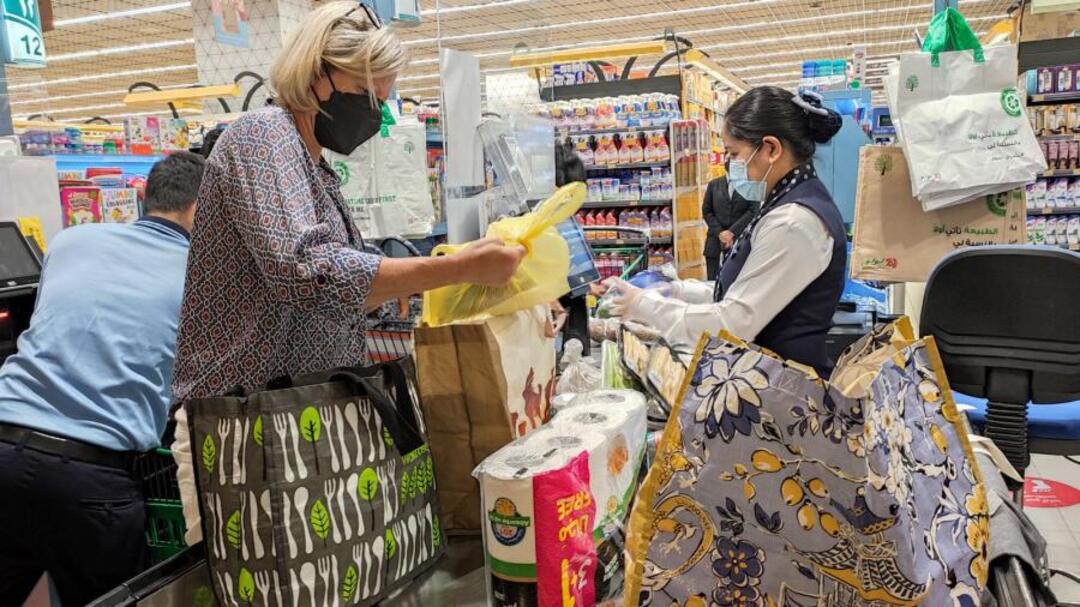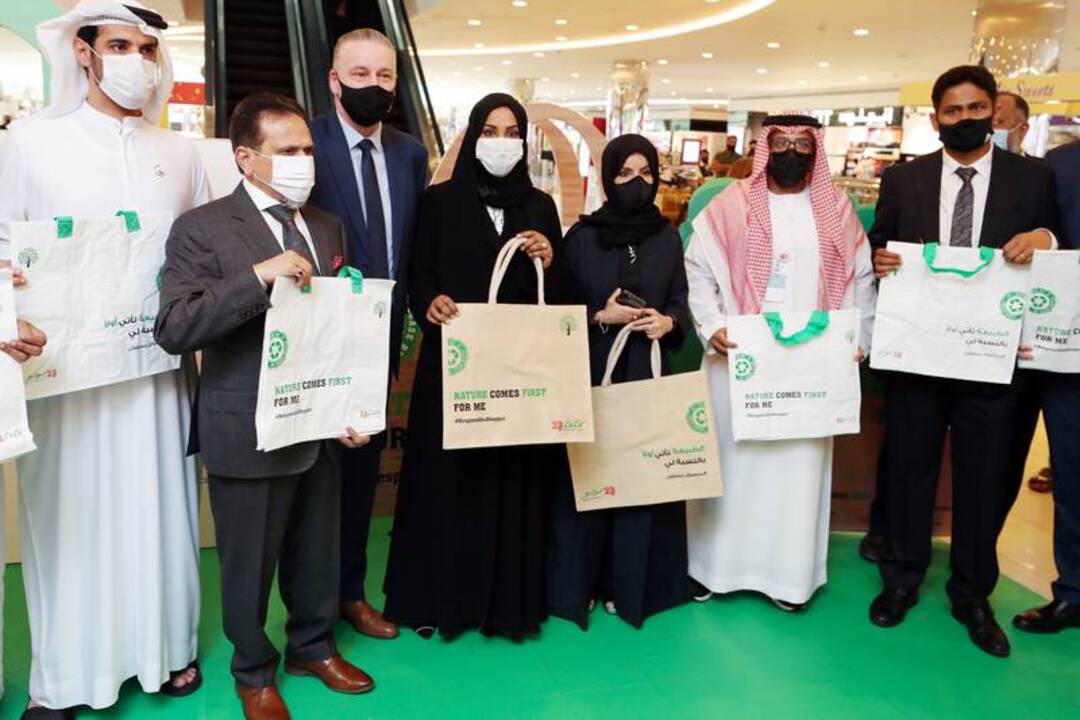-
Abu Dhabi: A ban on single-use plastic bags comes into force today

Citizens and residents in Abu Dhabi have given their thumbs up to the ban on single-use plastic bags that comes into effect from today (June 1), and are buying reusable ones for a fee of 50 fils.
The policy aims to protect the environment and address the high rate of plastic bag use across the UAE, which is almost four times the global average.
According to figures shared by the World Government Summit in February 2019, 11 billion plastic bags are used in the Emirates each year.
Dr Shaikha Al Dhaheri, secretary general of Environment Agency Abu Dhabi, said last week: “This is equivalent to 1,182 plastic bags per person annually. This is considered a very high rate compared to the global average of 307 bags per person annually."

People will either have to bring their own or pay for a reusable bag, which will be for sale in stores and supermarkets. No single-use plastic bags will be available, even at a charge.
Dubai to charge fee on plastic bags, aiming of outlawing them in 2 years
Reusable bags start from 50 fils and there are several options from Dh1, Dh2.5 to Dh7.5. Major retailers like Abu Dhabi Co-operative Society, Carrefour, Lulu Hypermarket, Spinneys among others have all joined the campaign.
A UAE study showed plastic has caused the deaths of hundreds of camels since 2008.
About 10 per cent of the 30,000 camels studied by Dubai’s Central Veterinary Research Laboratory died due to polybezoars, which are lumps of indigestible material made of plastic.
Three in four people worldwide want single-use plastics to be banned
Polybezoars can weigh up to 53kg and include plastic bags, rope and parts of plastic bottles, which accumulate over the years when the animals eat the materials after mistaking them for food.
levantnews-agencies
You May Also Like
Popular Posts
Caricature
BENEFIT Sponsors BuildHer...
- April 23, 2025
BENEFIT, the Kingdom’s innovator and leading company in Fintech and electronic financial transactions service, has sponsored the BuildHer CityHack 2025 Hackathon, a two-day event spearheaded by the College of Engineering and Technology at the Royal University for Women (RUW).
Aimed at secondary school students, the event brought together a distinguished group of academic professionals and technology experts to mentor and inspire young participants.
More than 100 high school students from across the Kingdom of Bahrain took part in the hackathon, which featured an intensive programme of training workshops and hands-on sessions. These activities were tailored to enhance participants’ critical thinking, collaborative problem-solving, and team-building capabilities, while also encouraging the development of practical and sustainable solutions to contemporary challenges using modern technological tools.
BENEFIT’s Chief Executive Mr. Abdulwahed AlJanahi, commented: “Our support for this educational hackathon reflects our long-term strategic vision to nurture the talents of emerging national youth and empower the next generation of accomplished female leaders in technology. By fostering creativity and innovation, we aim to contribute meaningfully to Bahrain’s comprehensive development goals and align with the aspirations outlined in the Kingdom’s Vision 2030—an ambition in which BENEFIT plays a central role.”
Professor Riyadh Yousif Hamzah, President of the Royal University for Women, commented: “This initiative reflects our commitment to advancing women in STEM fields. We're cultivating a generation of creative, solution-driven female leaders who will drive national development. Our partnership with BENEFIT exemplifies the powerful synergy between academia and private sector in supporting educational innovation.”
Hanan Abdulla Hasan, Senior Manager, PR & Communication at BENEFIT, said: “We are honoured to collaborate with RUW in supporting this remarkable technology-focused event. It highlights our commitment to social responsibility, and our ongoing efforts to enhance the digital and innovation capabilities of young Bahraini women and foster their ability to harness technological tools in the service of a smarter, more sustainable future.”
For his part, Dr. Humam ElAgha, Acting Dean of the College of Engineering and Technology at the University, said: “BuildHer CityHack 2025 embodies our hands-on approach to education. By tackling real-world problems through creative thinking and sustainable solutions, we're preparing women to thrive in the knowledge economy – a cornerstone of the University's vision.”
opinion
Report
ads
Newsletter
Subscribe to our mailing list to get the new updates!






















